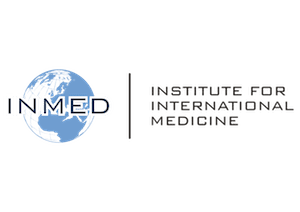Forum Replies Created
-
AuthorPosts
-
 Jasleen KaurParticipant
Jasleen KaurParticipant1. A significant barrier to HIV control is primarily education. Many of the citizens of low resource communities are not aware of the many potential causes of HIV or what HIV may even be which prevents them from being able to be mindful of their everyday practices. Another thing is that there is a lot of misinformation about HIV that unless you go out of your way to learn more about it you will miss a lot of key information, this is true for anyone whether they are in healthcare or not. Another thing is that those of low resource communities do not have the means of many easily obtainable things that can help to prevent HIV such as safe intercourse, many women do not have the choice of who their partner is or how many so it is quite literally out of their hands and there is not much that can be done to stop that as it is most likely on a cultural level.
2. The article provided listed a great many reasons that pediatric HIV control is lagging behind that of adults and includes the fact that more than seventy-five percent of pregnant women receive HIV care, one in 5 women still are not tested for HIV or do not start ART during pregnancy, there is also a percentage of pregnant women who do not finish their ART treatment. Another factor is that HIV-infected infants and children are not diagnosed in a timely manner and therefore fifty percent of these children who got HIV during pregnancy or labor end up dying within their first two years. Additionally, there are many children who never get tested in many different clinics and wards which results in an untimely death.
 Jasleen KaurParticipant
Jasleen KaurParticipantNilda,
I agree with your comments, my family is from India and when I go to visit my extended family there it is true that many pay cash upfront for whatever service or medication they need, this is especially the case in small villages so if they do not have the money it is hard to get medical attention. It is also true that many turn to ayurvedic treatments and although this can be extremely effective depending on the illness (my family are firm believers in ayurvedic treatment at home but also modern medicine when needed). However, there are some things that ayurvedic treatments just cannot tackle but since it is difficult to get proper medical care this is all that many can turn to. Jasleen KaurParticipant
Jasleen KaurParticipantQuestion 1:
There are many factors that contribute to a higher risk of contracting tuberculosis in low-resource communities. Some of these factors include that it is transmitted by sneezing or coughing from an infected person, so this can be prevented by simply wearing a mask which is easy to produce and inexpensive, a mask can be made out of recycled clothing as well and other ways to make a DIY mask exist. It is most easily transferred from an infected person to a family member or someone who is living in the same household so to prevent close contact transmission the infected person can self-quarantine away from family if that option is available. Another reason that people contract TB is a suppressed immune system. This can be controlled by improving one’s immune health including factors such as proper nutrition.Question 2:
Two interventions to help neglected tropical diseases are educating the low-resource community population on how they can take simple yet effective hygiene actions to prevent many preventable tropical diseases and, as the world tends to brush people in need under the rug on a large scale, bringing awareness to these tropical diseases to the public. The reason I say this is because I was also one of the many who was ignorantly unaware of many of these tropical diseases and the hardships so many people of low-resource communities face, I believe that if more people were aware and educated on this topic then many more people would come forward in hopes of making things a bit easier for those in need such as large-scale fundraisers or going on to enter a work field related to helping these countries. Jasleen KaurParticipant
Jasleen KaurParticipantHi everyone! My name is Jasleen Kaur. I am a third-year undergraduate student earning a B.S. in biology with an emphasis in biomedical sciences, a B.A. in psychology as well as a minor in chemistry at UMKC. Due to special circumstances, I am enrolled in this course and I look forward to interacting with you all!
1) I recently decided to pursue medicine so I do not have any healthcare experience besides volunteering for the American Red Cross as often as I can. I am hoping to expand my experiences in the near future.
2) I am taking this course to understand the world a bit better and understand the situation of those who have been forgotten. As an undergraduate, we learn things like biochemistry, organic chemistry, and physics as well as other fundamentals but we rarely ever discuss what is happening in the world and what we can do to improve the lives of others so when I heard about INMED I knew I had to take this opportunity!
3) I am planning to go to medical school and enter an MD/Ph.D. program involving neuroscience (there aren’t many so it’s a bit tricky) I also plan to specialize in neurology and open up my own practice as well as conducting my own research and teach at a university because I have always enjoyed guiding others. -
AuthorPosts
